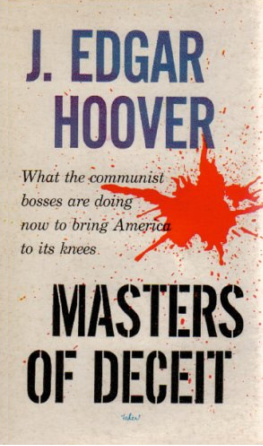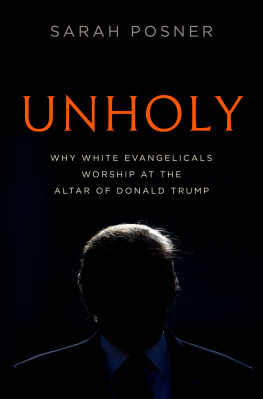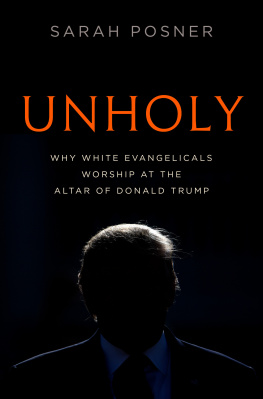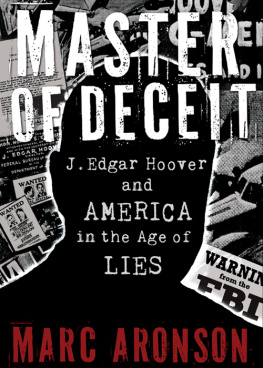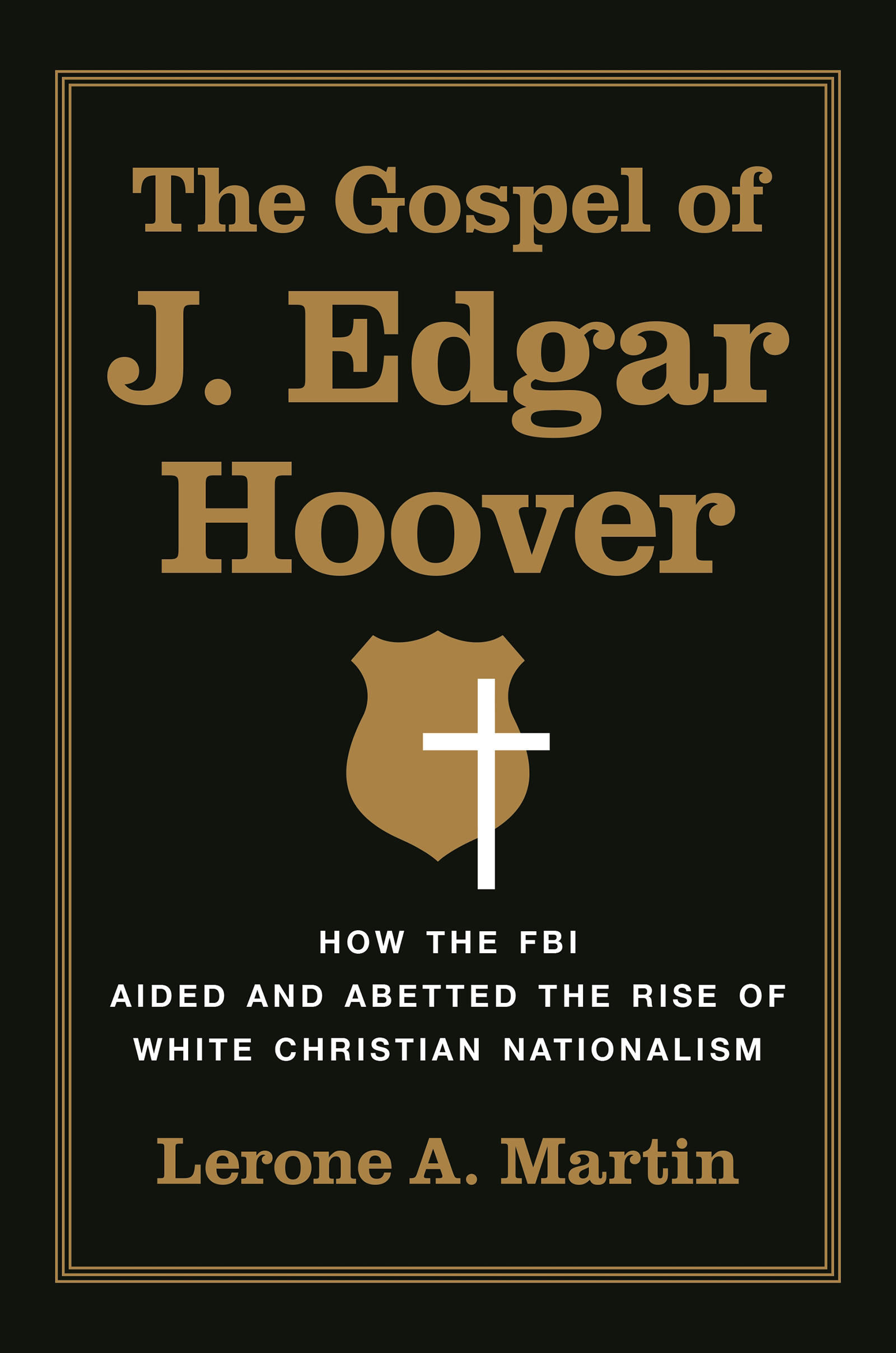The Gospel of J. Edgar Hoover
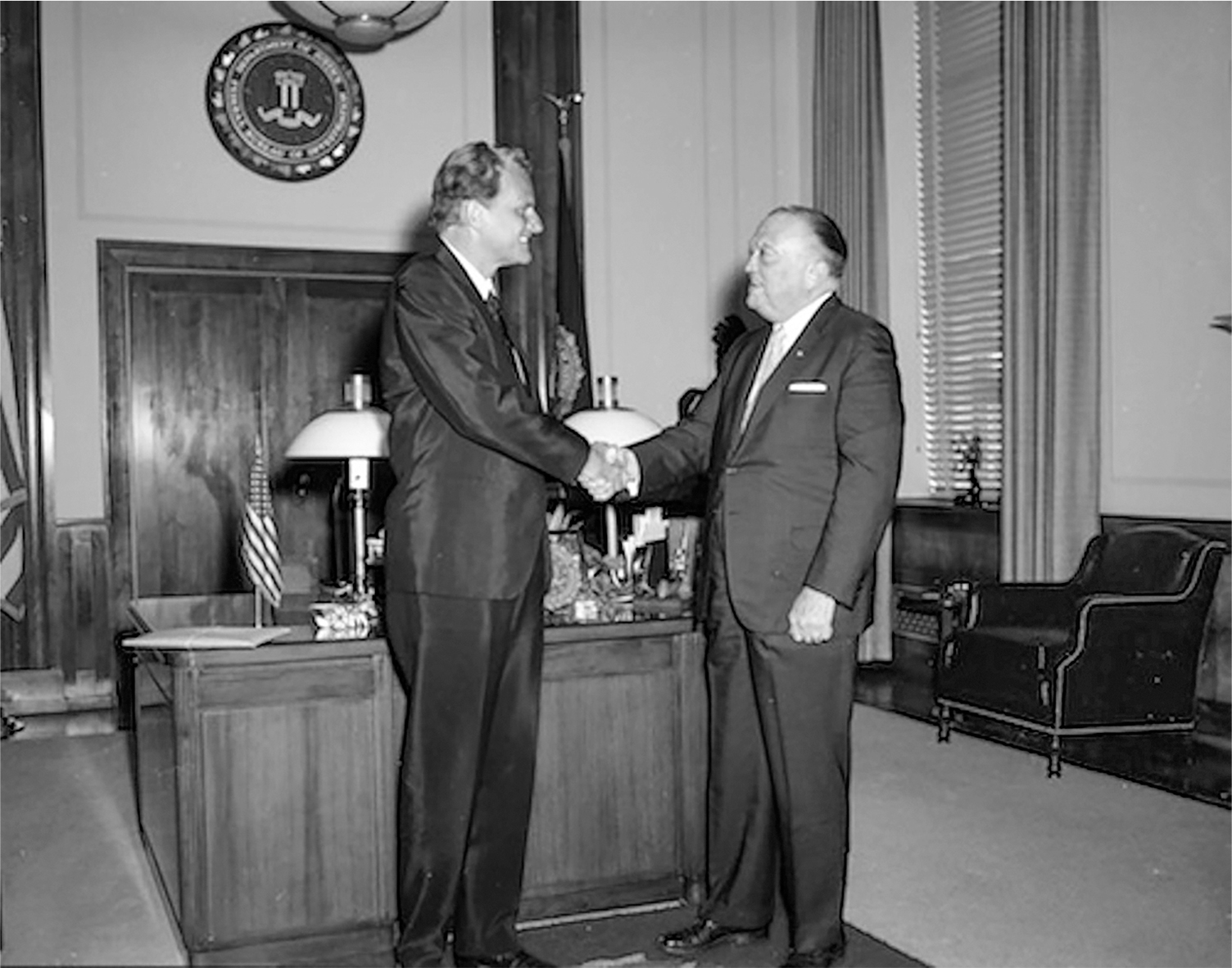
The Gospel of J. Edgar Hoover
HOW THE FBI AIDED AND ABETTED THE RISE OF WHITE CHRISTIAN NATIONALISM
Lerone A. Martin
PRINCETON UNIVERSITY PRESS
PRINCETON AND OXFORD
Copyright 2023 by Princeton University Press
Princeton University Press is committed to the protection of copyright and the intellectual property our authors entrust to us. Copyright promotes the progress and integrity of knowledge. Thank you for supporting free speech and the global exchange of ideas by purchasing an authorized edition of this book. If you wish to reproduce or distribute any part of it in any form, please obtain permission.
Requests for permission to reproduce material from this work should be sent to
Published by Princeton University Press
41 William Street, Princeton, New Jersey 08540
99 Banbury Road, Oxford OX2 6JX
press.princeton.edu
All Rights Reserved
ISBN 9780691175119
ISBN (e-book) 9780691244983
Version 1.0
British Library Cataloging-in-Publication Data is available
Editorial: Fred Appel and James Collier
Production Editorial: Sara Lerner
Text and Jacket Design: Heather Hansen
Production: Erin Suydam
Publicity: Kare Hensley and Kathryn Stevens
Copyeditor: Karen Verde
Frontis: FBI Director J. Edgar Hoover shaking hands with noted religious broadcaster and revivalist Billy Graham at FBI Headquarters, May 1, 1969. Source: Record Group 065, Photos of FBI Personnel and Activities, 19351972, Still Pictures, Photo HN-9005, Box 17, National Archives and Records Administration, II, College Park, MD
For my parents
Larry & Rose Martin
Who raised their children according to Matthew 7:12, In everything, therefore, treat people the same way you want them to treat you, for this is the Law and the Prophets.
Contents
- ix
Prologue: Suing the FBI
I sued the FBI to write this book. On August 12, 2018, I filed suit against the US Department of Justice (DOJ) for FBI records on Billy Graham (Martin v. United States Department of Justice, 2018, Case Number 18-1885). I was convinced the preacher had an FBI file. No American in the mid-twentieth century could reach his level of fame, notoriety, and influence, yet manage to escape the vigilant, prying eyes of Hoovers FBI. And no civilian was permitted into Hoovers inner sanctum for a staged photograph without knowingly or unknowingly enduring a thorough background check. In one way or another, Graham was involved with the FBI, and I thought the Freedom of Information Act (FOIA) was the key to find out how. But I was wrong. The FBI played hardball, so I sued. It was my only recourse, a desperate attempt to force the FBI to abide by the FOIA.
Revelation is the purpose of the modern FOIA. President Lyndon Johnson signed it into law on Independence Day, 1966. LBJ publicly praised the bill, which gave Americans the opportunity to petition for records of US executive branch agencies. This legislation springs from one of our most essential principles: a democracy works best when the people have all the information that the security of the Nation permits, he proudly announced. Privately, however, the president despised the bill, allowing it to languish on his desk. Johnson finally signed the fucking thing, as he scornfully referred to it, after much persuasion, narrowly ducking its pocket veto. His reluctant attitude foreshadowed how executive branch agencies would execute the law.
My ordeal with Graham gave me firsthand experience with their approach. I made my original FOIA request on February 21, 2018. It was the day Graham died, and his legal privacy rights, at least in textual materials, went to the grave with him. The FBI acknowledged my FOIA request, yet failed to make a determination within the twenty-day statutory deadline mandated by Congress. The FBI did not bother to claim unusual or exceptional circumstances to excuse their malfeasance. They just ignored me. I heard from the Bureau almost two months later. The April letter was as bold as the typeface in which it was set. The Bureau did not concede breaking the law. They simply informed me they would not disclose or even acknowledge the existence of any records concerning Billy Graham and his relationship to law enforcement or national security. These were significant and ironic exclusions for Graham. The preacher had advised US presidents for more than half a century, advocating evangelical Christianity as the key to national security, yet there would be no disclosures. If the FBI determined there were files that resided outside of this broad purview, they pledged to make them public via their FOIA website at some undisclosed date in the future. Then, and only then, would I be informed. The Trump DOJ dug in their heels. This should not have been surprising. President Donald Trumps attorney general, William Barr, was constantly lambasting the FOIA as a dangerous nuisance, that amounted to constant harassment of the DOJ. I decided to join the torrent of disturbance, filing suit in the US District Court for the District of Columbia.
The civil litigation produced a saga of hide and seek, lost and found. The FBI admitted a number of records on Graham had been destroyed in accordance with a 1986 court order. The ruling created the FBI Records Retention Plan, a rubric that assigns preservation schedules for FBI files based on their potential research value. More than three decades later, the same court informed me that records pertaining to the nations most famous evangelist had been legally destroyed by the FBI. What was valuable to me was deemed legally disposable by the FBI. Worse, the FBI testified that other files had been lost or were unable to be located. Judge Christopher R. Cooper, an Obama appointee, supervised the FBI as it located and turned over files on a rolling basis. The FBI produced a deluge of documents detailing investigations of deranged death threats targeting Graham, as well as an obsessive amount of newspaper clippings covering the preachers whereabouts and statements. However, there was nothing detailing Grahams relationship to Hoover, the FBI, or any other executive agency.
The promised transparency of President Bidens administration provided false hope. In July 2021, Kathleene Molen, Assistant United States Attorney (AUSA) for the US Attorneys Office for the District of Columbia, brought good tidings. AUSA Molen informed my counsel, Tuan Samahon, the FBI has located a file that it had previously been unable to locate. The FBI indicates that the file is related to Billy Graham. With no explanation, the FBI miraculously found a thirty-page file on Billy Graham. I did not care if it was the result of an actual miracle, political timing, or just the correction of incompetence: I counted it a godsend. But my joy was short-lived. The once lost, now found file was largely more of what I had already received.
But I refused to stop. The case was settled, with the DOJ agreeing to pay for attorney fees and other litigation costs. Upon turning my attention to Grahams official archives, I quickly learned the FBI had a co-conspirator in its archival cover-up. Shortly after my public lawsuit, Billy Grahams son Franklin Graham, a staunch right-wing evangelist, announced Billy Grahams archival holdings would be moved from their original longtime home of Wheaton College to North Carolina. This may not have been a coincidence. The FBI has a practice of releasing High Visibility Memoranda, warning various government and civic entities of a proposed release of high-profile files and the possible fallout. The Bureau denied the existence of such a memo in my case. However, the result was the same. Billy Grahams family took cover, protecting Billy Grahams legacy as the figurehead and proxy of modern white evangelicalism at all costs. Now Grahams archival holdings, dating back to 1940, are under the complete control and supervision of the Graham family, specifically Franklin Graham, and cannot be accessed without his blessing.



